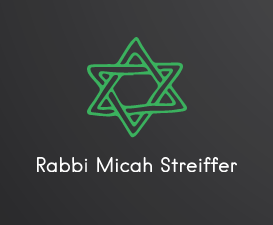These days, we spend our lives connected to information, and connected electronically to the world. At any moment of the day, you can find out the answer to almost any question; and at any moment of the day, others can reach you – through email, phone, online social networking, etc. 
This kind of access – and this kind of accessibility – raise important religious questions.What are the boundaries between our home lives and our work lives? What kind of time are we devoting to self-growth or to family or to our inner lives if we are always connected to the outside world? If we spend our lives building and conquering (so to speak) the world, then when do we stop to appreciate and be thankful?
That’s why I was so intrigued by Kai Ryssdol’s interview on Marketplace with William Powers, author of “Hamlet’s Blackberry.” (The interview is here. You can read it or listen to it online.) I will start by admitting that I have not read William Powers’ book, though I think I would now like to. I was most intrigued by Powers’ reference to his family’s “Internet Sabbath.”
In my family, we do something we call the “Internet Sabbath,” which has no religous meaning, it’s completely secular. But on Friday night, we unplug the household modem which serves my computer, my wife’s and our 12-year-old son’s, and it’s unplugged every weekend until Monday morning.
Au contraire, Mr. Powers! You may not think that your Internet Sabbath has religious meaning, but you have stumbled upon the very essence of Shabbat. From Rabbi Abraham Joshua Heschel’s The Sabbath:
Six days a week we wrestle with the world, wringing profit from the earth; on the Sabbath we especially care for the seed of eternity planted in the soul. The world has our hands, but our soul belongs to Someone Else. Six days a week we seek to dominate the world, on the seventh day we try to dominate the self. (p. 13)
The solution of mankind’s most vexing problem will not be found in renouncing technical civilization, but in attaining some degree of independence of it. (p. 28)
Shabbat is a time to stop trying to master the world and instead to live in the world. Ultimately, that is why we’re not allowed (according to tradition) to light fires or build buildings or cook food on Shabbat: because it is the one day of the week when we do not seek to control the world around us. The benefit of an “Internet Sabbath” is not only that it removes the distractions that might take us away what’s really important, but also that it may help us tame our impulse to be constantly accomplishing and acquiring.
Not that there’s anything wrong with acquiring and accomplishing; it’s just that’s there’s also something to be said for appreciating, and observing, and breathing… and resting.

One thought on “Information Overload: Is Shabbat the Solution?”